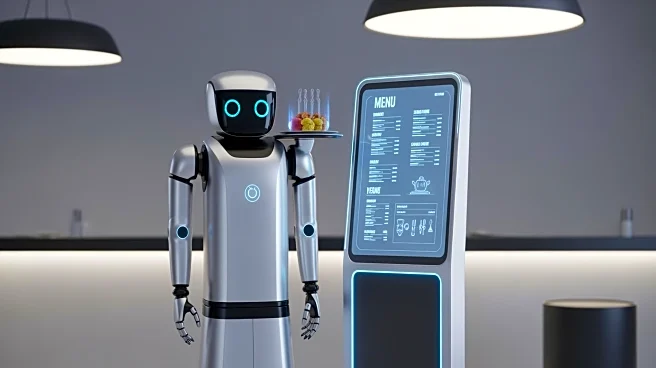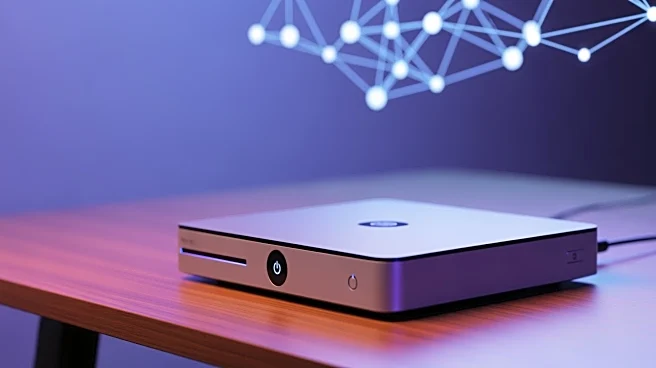What's Happening?
White Castle has launched a new restaurant concept in Columbus, Ohio, named the 'Castle of Tomorrow.' This location integrates advanced technology to enhance the dining experience, including a robotic
fry station assistant, AI-powered drive-thru systems, and self-service kiosks. The initiative aims to cater to modern diners and improve operational efficiency. The restaurant features a redesigned interior with vibrant colors and an open layout, reflecting White Castle's commitment to innovation and customer satisfaction.
Why It's Important?
The introduction of technology-driven features at White Castle represents a significant shift in the fast-food industry towards automation and AI integration. This move aligns with trends seen in other major chains like Wendy's and McDonald's, which have adopted similar technologies to streamline operations and improve customer service. While these advancements can enhance efficiency and potentially increase sales, they also raise concerns about the diminishing human element in dining experiences. The success of this initiative could influence other restaurants to adopt similar technologies, impacting employment and customer interaction norms.
What's Next?
White Castle has not yet confirmed if the 'Castle of Tomorrow' concept will be expanded to its other locations nationwide. However, the company is considering further implementations based on the feedback and performance of the Columbus prototype. This could lead to a broader rollout of technology-driven features across its 350 restaurants, potentially setting a new standard in the fast-food industry for tech integration.
Beyond the Headlines
The shift towards technology in dining experiences raises ethical and cultural questions about the future of human interaction in service industries. As restaurants increasingly rely on AI and automation, there is a risk of alienating customers who prefer traditional service methods. Additionally, this trend may impact employment in the sector, as roles traditionally filled by humans are replaced by machines. The long-term implications of these changes could redefine customer service and operational models in the fast-food industry.










